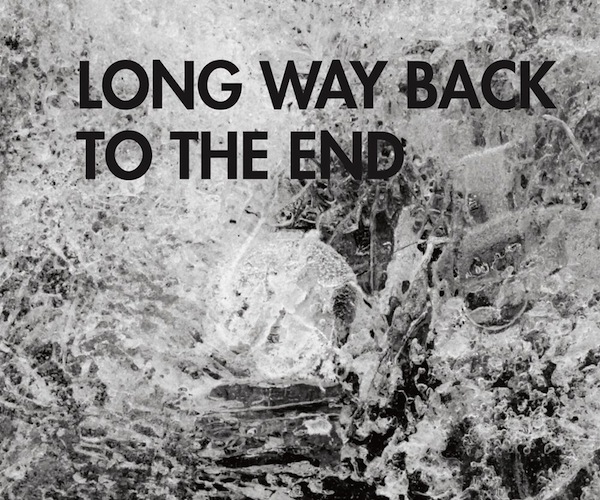Poetry Review: “Long Way Back to the End” — Zero to the Icy Bone
American poet Paul B. Roth is keenly aware that a striking phrase can set a dream in motion.
Long Way Back to the End, 67 pages, Paul B. Roth, Rain Mountain Press, $15.

By Vincent Czyz
Paul B. Roth’s Long Way Back to the End might have been left in the wake of a passing glacier. It is metal against your bare chest. It’s a tombstone you’ve fallen asleep on only to be woken by the stony cold soaking through your jacket. Within these pages the “fragile light” of a faint star is ground “into dust.” The deep chill evoked by these poems has a lot in common with Albert Goldbarth’s duels with loneliness, particularly during the early onset of darkness and the desolation of winter in his January 31 collection. Rob Cook’s imagistic and intense Songs for the Extinction of Winter also comes to mind.
Snow, ice, icicles, cold, darkness, frozen, winter—one or more of these words (or a form of one of them) show up in about three-quarters of Roth’s poems. Here, for example, is the opening of “End Company”: “Nearby deer kneel in a dream of snow, their chins dripping with thelong drinks they’ve taken from one of winter’s hidden streams.” Aside from the subzero setting, it is also worth noting the elegantly achieved assonance in four of the first six words and in the final word, which, plural ending aside, rhymes with “dream.” The closing sentence of “Midnight Blue” is also dusted with frost: “Late that night you are discovered where an aqua tint of snow around your head sunk in a snowbank’s deep bootprint resembles the halo your longwalk home had you hoping you would find.” An image, incidentally, that leaves its thumbprint on your retina—for several blinks at least—while the repeated O’s in snowbank, halo, home, and hoping add echo.
The poems are short; none is more than about three quarters of a page. Arranged in sentences without line breaks, they are closer to prose poems. But these are not the typical prose poems that often crash-land in a junkyard located somewhere between short stories and poetry. Nor do they frustrate the reader with their inaccessibility—a habit too much avant-garde work seems unwilling to break. Like music, they tend to dodge the rational mind’s catcher’s mitt and go right to instinct’s dark center.
Roth’s sentences are often long, so long sometimes that they should break somewhere in the middle, but they don’t; instead they bow into graceful arcs. Flaubert wondered in one of his letters why compressing prose often resulted in poetry, yet Roth achieves astonishing effects without pressurizing his language. Instead these lengthy sentences form delicate mobiles; turning lazily in calm air, they tinkle like wind chimes.
The renowned French symbolist Stephane Mallarme reminds us that poems “are made of words, not sentiments.” I am delighted to see that Roth’s prose poems abide by Mallarme’s observation. Roth is keenly aware that a striking phrase can set a dream in motion. That language need not always be a limit against which we bang our heads. Roth’s mission, it seems, is to reveal a new underside to the familiar or to provoke us into reevaluating what we thought we knew.
Here, in a single marathon sentence (it is also the first “stanza” of “Stars Alone”) Roth jimmies open a passageway for thought to wander along:
Posted to the night, invaluable stars you peel one after another off the sky palletize their flat selves in warehouses protected by acid-filled canals and electrified fences barbed with the charred incisors screened from the ashes of way too many unloved dogs.
The vision here is undeniably bleak but also hard to turn away from.
What Roth seems to be after is an impression, not in clay or some other malleable material, but in words, an imprint of the isolated self caught in the crossfire between what comes from within (emotions, thoughts, memories) and what acts on it from the outer world that it must somehow navigate.
As with any collection, some of the poems veer off a little or fall shy of their target. A couple of the endings are a little flat. A handful of the sentences lose their balance, like gangly teenagers, and tip over; a few would probably benefit from a well-placed cut or two. Overall, however, this is a strong performance from an accomplished poet whose work has been published in seven other countries, including Japan, France, China, and Romania. Roth has authored seven books of poetry in all, and if Long Way Back to the End is any indication, there’s a great deal of Roth’s work out there well worth exploring.
Vincent Czyz is the author of Adrift in a Vanishing City. He is the recipient of the Faulkner Prize for Short Fiction and two NJ Arts Council fellowships. The 2011 Capote Fellow, his work has appeared in many publications, including Shenandoah, AGNI, The Massachusetts Review, The Georgetown Review, Tin House online, Louisiana Literature, Southern Indiana Review

